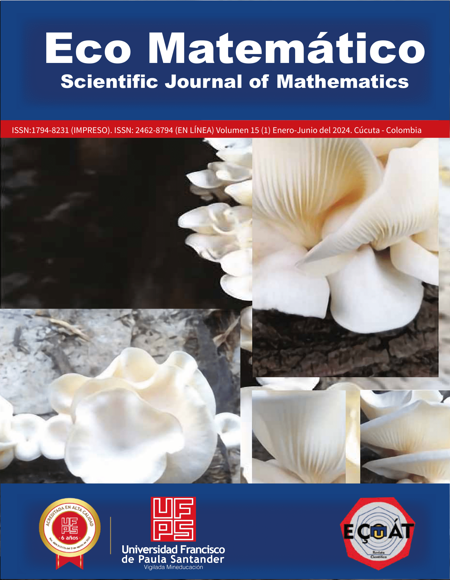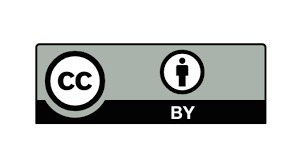Incident factors in the academic performance of secondary education students in Cundinamarca-Colombia
Factores incidentes en el desempeño académico de estudiantes de educación media en Cundinamarca-Colombia
Main Article Content
The quality of education is multifactorial and multidimensional. The present study focuses on understanding the variables that affect the academic performance, measured in the Saber 11 standardized tests of secondary school students in the department of Cundinamarca-Colombia. The focus of the study is quantitative. The process in the development of the work adheres to the Cross Industry Standard Process for Data Mining methodology (Understanding the business or problem, Understanding the data, Data preparation, Modeling, Evaluation and Implementation). The data used are the open databases of the Colombian Institute for the Promotion of Higher Education ICFES. The model used to determine the variables that have an effect is Multilevel regression. The results indicate that the variables with a fixed effect in predicting academic performance are gender, student work, parental education, number of family members and contextual resources. In conclusion, transforming the conditions of the contexts and favoring time with the family, especially with the mother, seem to have an impact on obtaining better results in the academic performance of students in the Saber 11 tests.
Downloads
Article Details
Abdul-Aziz, A., Hafieza-Ismail, N., Ahmad, F., & Hassan, H. (2015). A framework for students’ academic performance analysis using naïve bayes classifier. Jurnal Teknologi, 75(3), 13–19. https://doi.org/10.11113/jt.v75.5037 DOI: https://doi.org/10.11113/jt.v75.5037
Acevedo-Álvarez, R. (2008). Los modelos jerárquicos lineales: fundamentos básicos para su uso y aplicación. Universidad de Costa Rica.
Ali, S., Haider, Z., Munir, F., Khan, H., & Awais, A. (2013). Factors Contributing to the Students Academic Performance: A Case Study of Islamia University Sub-Campus. American Journal of Educational Research, 1(8), 283–289. https://doi.org/10.12691/education-1-8-3 DOI: https://doi.org/10.12691/education-1-8-3
Ariza, J., Saldarriaga, J., Reinoso, K., & Tafur, C. (2021). Tecnologías de la información y la comunicación y desempeño académico en la educación media en Colombia. Lecturas de Economía, 94, 47–86. https://doi.org/10.17533/udea.le.n94a338690 DOI: https://doi.org/10.17533/udea.le.n94a338690
Benito, R., Alegre, M., & Gonzàlez-Balletbò, I. (2014). School Segregation and Its Effects on Educational Equality and Efficiency in 16 OECD Comprehensive School Systems. Comparative Education Review, 58(1), 104–134. https://doi.org/10.1086/672011 DOI: https://doi.org/10.1086/672011
Chacón-Vargas, É., & Roldán-Villalobos, G. (2021). Factores que inciden sobre el rendimiento académico de los estudiantes de primer ingreso del curso Matemática General del Instituto Tecnológico de Costa Rica. Uniciencia, 35(1), 265–283. https://doi.org/10.15359/ru.35-1.16 DOI: https://doi.org/10.15359/ru.35-1.16
Contreras, D., Delgadillo, J., & Riveros, G. (2019). Is home overcrowding a significant factor in children’s academic performance? Evidence from Latin America. International Journal of Educational Development, 67, 1–17. https://doi.org/10.1016/j.ijedudev.2019.01.006 DOI: https://doi.org/10.1016/j.ijedudev.2019.01.006
Correa Morales, J. C., & Salazar Uribe, J. C. (2016). Introducción a los modelos mixtos (1st ed.). Universidad Nacional de Colombia.
Cvencek, D., Fryberg, S., Covarrubias, R., & Meltzoff, A. (2017). Self-Concepts, Self-Esteem, and Academic Achievement of Minority and Majority North American Elementary School Children. Child Development, 89(4), 1099–1109. https://doi.org/10.1111/cdev.12802 DOI: https://doi.org/10.1111/cdev.12802
Delgado Barrera, M. (2014). La educación básica y media en Colombia: Retos en equidad y calidad.
Froiland, J., & Oros, E. (2014). Intrinsic motivation, perceived competence and classroom engagement as longitudinal predictors of adolescent reading achievement. Educational Psychology, 34(2), 119–132. https://doi.org/10.1080/01443410.2013.822964 DOI: https://doi.org/10.1080/01443410.2013.822964
Gaete-Rivas, D., Olea, M., Meléndez-Illanes, L., Granfeldt, G., Sáez, K., Zapata-lamana, R., & Cigarroa, I. (2021). Hábitos alimentarios y rendimiento académico en escolares chilenos de quinto a octavo año básico. Revista Chilena de Nutrición, 48(1), 41–50. https://doi.org/10.4067/S0717-75182021000100041 DOI: https://doi.org/10.4067/S0717-75182021000100041
Gelman, A., & Hill, J. (2006). Data Analysis Using Regression and Multinivel/Hierarchical Models. Cambridge University Press. DOI: https://doi.org/10.1017/CBO9780511790942
George-Reyes, C. (2020). Pruebas Estandarizadas Y Calidad De La Educacion En México. Universidad y Sociedad Revista Científica de La Universidad de Cienfuegos, 12(4), 418–425.
Guo, B., Zhang, R., Xu, G., Shi, C., & Yang, L. (2015). Predicting Students Performance in Educational Data Mining. International Symposium on Educational Technology, 125–128. https://doi.org/10.1109/ISET.2015.33 DOI: https://doi.org/10.1109/ISET.2015.33
Hasan, R., Palaniappan, S., Rafiez-Abdul, A., Mahmood, S., & Uddin-Sarker, K. (2018). Student Academic Performance Prediction by using Decision Tree Algorithm. 4th International Conference on Computer and Information Sciences (ICCOINS), 1–5. https://doi.org/10.1109/ICCOINS.2018.8510600 DOI: https://doi.org/10.1109/ICCOINS.2018.8510600
Hernández-Sampieri, R., Fernández-Collado, C., & Baptista-Lucio, M. (2014). Metodología de la investigación (J. Mares-Chacon, Ed.). McGraw Hill Intereamericana Editores S.A.
Ibourk, A., & Amaghouss, J. (2014). The performance of educational system in Morocco: A spatial analysis. Regional and Sectoral Economic Studies, 14(2), 109–128.
Kumari, P., Jain, P., & Pamula, R. (2018). An Efficient use of Ensemble Methods to Predict Students Academic Performance. 4th Int’l Conf. on Recent Advances in Information Technology. https://doi.org/10.1109/RAIT.2018.8389056 DOI: https://doi.org/10.1109/RAIT.2018.8389056
Lau, E. T., Sun, L., & Yang, Q. (2019). Modelling, prediction and classification of student academic performance using artificial neural networks. SN Applied Sciences, 1(982). https://doi.org/10.1007/s42452-019-0884-7 DOI: https://doi.org/10.1007/s42452-019-0884-7
Lisboa- Bartholo, T., & Da-Costa, M. (2016). Evidence of a school composition effect in Rio de Janeiro public schools. Ensaio, 24(92), 498–521. https://doi.org/10.1590/S0104-40362016000300001 DOI: https://doi.org/10.1590/S0104-40362016000300001
López-Vera, C., Vargas-Peñaloza, M., Gómez-Rodriguez, F., Rico-Marin, J., & Escandón-Wittsack, J. (2020). Informe Nacional de resultados del examen Saber 11 2020 (M. Bravo-Osorio & P. Cifuentes-Velasquez, Eds.). Instituto Colombiano para el Fomento de la Educación Superior ICFES.
Lorna, A., Donders, G., Simon, E., López, O., Madden, C., Morrone, A., Puddephatt, A., Throsby, D., & Wagner, A. (2014). Indicadores de cultura para el desarrollo. Manual metodológico. Patrimonio, Relevancia de la dimensión para la cultura y el desarrollo (G. A. y M. Medici, Ed.). Organización de las Naciones Unidas para la Educación.
Masci, C., Johnes, G., & Agasisti, T. (2018). Student and school performance across countries: A machine learning approach. European Journal of Operational Research, 269(3), 1072–1085. https://doi.org/10.1016/j.ejor.2018.02.031 DOI: https://doi.org/10.1016/j.ejor.2018.02.031
Maulida, J., & Kariyam. (2017). Students academic performance based on behavior. AIP Conference Proceedings, 1911(December 2017). https://doi.org/10.1063/1.5016003 DOI: https://doi.org/10.1063/1.5016003
Ministerio de Educación Nacional de Colombia. (2019). Decreto 1330 de 2019. Ministerio de Educación Nacional, 32.
Murillo-Torrecilla, F. (2008). Los modelos multinivel como herramienta para la investigación educativa. Magis revista internacional de Investigación en Educación, 1(1), 45-62. https://www.redalyc.org/pdf/2810/281021687004.pdf
Murillo, J., & Carrillo, S. (2021). Incidencia de la Segregación Escolar por Nivel Socioeconómico en el Rendimiento Académico. Un Estudio desde Perú. Archivos Analíticos de Políticas Educativas, 29(49), 3–11. https://doi.org/10.14507/epaa.29.5129 DOI: https://doi.org/10.14507/epaa.29.5129
Orjuela, J. (2014). Análisis del Desempeño Estudiantil en las Pruebas de Estado para Educación Media en Colombia mediante Modelos Jerárquicos Lineales. Ingeniería, 18(2). https://doi.org/10.14483/udistrital.jour.reving.2013.2.a04 DOI: https://doi.org/10.14483/udistrital.jour.reving.2013.2.a04
Ospina-Gómez, M. C. (2018). La escuela y su implicación en el conflicto armado en Colombia. Universidad Católica de Manizales.
Qiu, X., & Wu, S. sheng. (2019). Contextual variables of student math proficiency and their geographic variations in Missouri. Applied Geography, 109, 102040. https://doi.org/10.1016/j.apgeog.2019.102040 DOI: https://doi.org/10.1016/j.apgeog.2019.102040
Rebai, S., Ben Yahia, F., & Essid, H. (2019). A graphically based machine learning approach to predict secondary schools performance in Tunisia. Socio-Economic Planning Sciences, 70(August 2018), 100724. https://doi.org/10.1016/j.seps.2019.06.009 DOI: https://doi.org/10.1016/j.seps.2019.06.009
Rodríguez-De-Souza-Pajuelo, A. A., Tarazona-Luján, A. F., & Reyes-Bossio, M. (2021). Physical activity enjoyment and self-efficacy in school performance of 11-17-year-old students at educational institutions in Lima. Journal of Physical Education and Sport, 21(3), 2183–2189. https://doi.org/10.7752/jpes.2021.s3278 DOI: https://doi.org/10.7752/jpes.2021.s3278
Salal, Y., & Abdullaev, S. (2020). Deep Learning based Ensemble Approach to Predict Student Academic Performance: Case Study. In 2020 3rd International Conference on Intelligent Sustainable Systems (ICISS). https://doi.org/10.1109/ICISS49785.2020.9316044 DOI: https://doi.org/10.1109/ICISS49785.2020.9316044
Sbroglio-Rizzotto, J., & Aniceto-França, M. (2020). Does Bullying Affect the School Performance of Brazilian Students? An Analysis Using Pisa 2015. Child Indicators Research, 14, 1027–1053. https://doi.org/10.1007/s12187-020-09790-0 DOI: https://doi.org/10.1007/s12187-020-09790-0
Schuth, E., Köhne, J., & Weinert, S. (2017). The influence of academic vocabulary knowledge on school performance. Learning and Instruction, 49, 157–165. https://doi.org/10.1016/j.learninstruc.2017.01.005 DOI: https://doi.org/10.1016/j.learninstruc.2017.01.005
Shah, M., Kaistha, M., & Gupta, Y. (2019). Student Performance Assessment and Prediction System using Machine Learning. 4th International Conference on Information Systems and Computer Networks, ISCON 2019, 386–390. https://doi.org/10.1109/ISCON47742.2019.9036250 DOI: https://doi.org/10.1109/ISCON47742.2019.9036250
Touchon, J. C. (2021). Applied Statistics with R. In Oxford Scholarship. https://doi.org/10.1093/oso/9780198869979.001.0001 DOI: https://doi.org/10.1093/oso/9780198869979.001.0001
Wandera, H., Marivate, V., & Sengeh, M. (2019). Predicting national school performance for policy making in South Africa. 6th International Conference on Soft Computing and Machine Intelligence, ISCMI 2019, 23–28. https://doi.org/10.1109/ISCMI47871.2019.9004323 DOI: https://doi.org/10.1109/ISCMI47871.2019.9004323
Xu, X., Wang, J., Peng, H., & Wu, R. (2019). Prediction of academic performance associated with internet usage behaviors using machine learning algorithms. Computers in Human Behavior, 98(April), 166–173. https://doi.org/10.1016/j.chb.2019.04.015 DOI: https://doi.org/10.1016/j.chb.2019.04.015
Yopasá, A., & Valbuena, F. (2019). Resultados de las Pruebas iCFES en Ciencias sociales a través del análisis espacial.
Zhang, D., & Campbell, T. (2014). An examination of the impact of teacher quality and “Opportunity Gap” on student Science Achievement in China. International Journal of Science and Mathematics Education, 13(3), 489–513. https://doi.org/10.1007/s10763-013-9491-z DOI: https://doi.org/10.1007/s10763-013-9491-z







